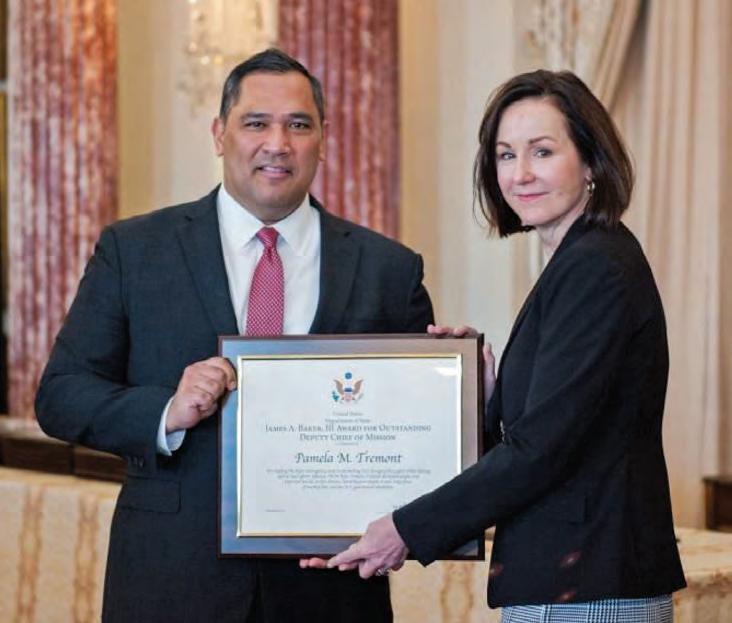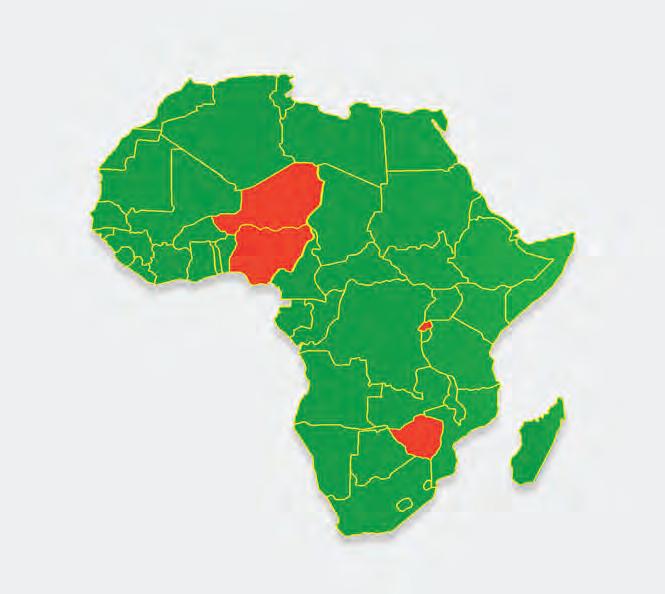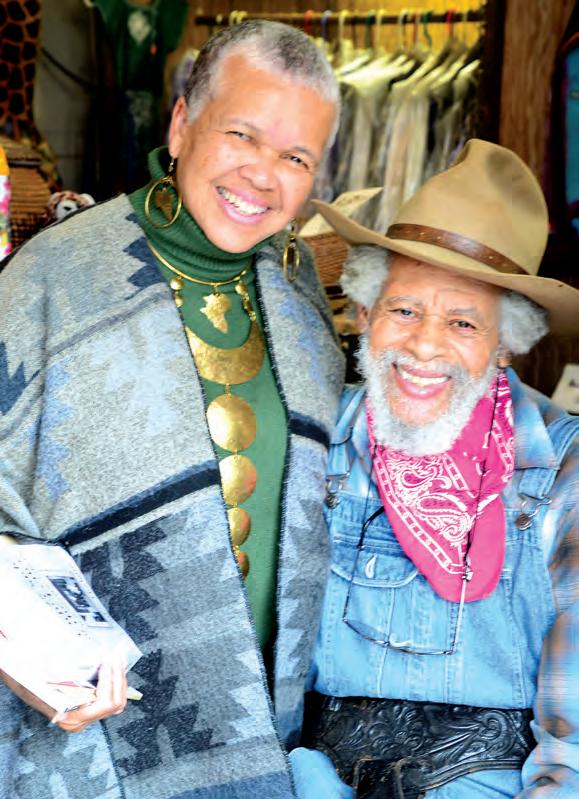
3 minute read
U.S. SENATOR ANNOUNCES SHAKEUP OF AMBASSADORS HEADED FOR AFRICA
By Lisa Vives Global Information Network
Following the contentious election exercise in Nigeria now facing court challenges by at least two of the parties unsuccessful at the polls, U.S. President Joe Biden has named new U.S. ambassadors to four African nations where troubles also abound.
The four countries are on the radar of the new US Africa strategy. The new appointees were introduced by Idaho Sen. Jim Risch, one of the U.S. senators whose office was heavily damaged by rioters in the Jan. 6 invasion of the U.S. capitol.
To the nomination of Pamela M. Tremont as U.S. ambassador to Zimbabwe, Risch added he was “appalled by the continued abuses of power, excessive corruption, and horrific human rights record under Zimbabwe’s leadership. These not only inhibit the U.S.-Zimbabwe relationship, but also deprive the region of benefitting from a prosperous Zimbabwe.”
“With elections expected this summer, we already see the Zimbabwean regime taking the country down a dark and familiar path of electoral violence, repression, and impunity.”
Tremont, from Virginia, has 30 years of experience in foreign services. She will arrive in Zimbabwe ahead of the general elections, which she said was an opportunity to “deliver on President Emmerson Mnangagwa’s yet-to-be-realized commitment to hold a peaceful and democratic electoral process.”
On the nomination of Eric W. Kneedler as ambassador to Rwanda, Risch called it an important job where the U.S. has critical priorities - where Rwanda can either be a constructive partner or an unhelpful constraint.
He cited the regional conflict in Eastern Congo and the re-engagement of M23 and other rebel groups; the Rwandan government’s deten tion of U.S. permanent resident and recipient of the Presidential Medal of Freedom Paul Rusesabagina; and Rwanda’s role in helping to stabilize northern Mozambique and the Central African Republic.
“I am keen to hear how Mr. Kneedler will confront these chal lenges while shaping a U.S. policy in Rwanda that requires greater clarity and direction.”
On the nomination of Kathleen A. FitzGibbon as ambassador to Niger, it was noted that Niger is cen tral in the US fight against terrorism. Having worked in Nigeria, Chad, Uganda, Sierra Leone and Gabon, FitzGibbon has a wealth of experience in counterter rorism.
“I look forward to hearing how Ms. Fitzgibbon will support the U.S.-Niger security relationship while being a visible proponent for developing resilient, democratic institutions in Niger,” Risch said. Finally, on the nomination of Richard Mills of Georgia as ambassador to Nigeria, Risch observed that recent elections in Nigeria still showed many of the technical and institutional challenges that plagued previous polls.
“The new government will be faced with many challenges,” Risch said, “such as how to beat back the threat from ISIS, Boko Haram, and other criminal elements in Nigeria; how to reduce intra-communal strife in the country that has claimed the lives of far too many Nigerian Muslims and Christians, and how to harness Nigeria’s vast oil wealth to improve the lives of its citizens.”
“It is critical that Nigeria find a path forward that serves the will of the Nigerian people,” he said.
While Risch called the elections “deeply flawed,” the U.S. was the first to congratulate President-elect Bola Tinubu on Wednesday.
“Lastly, the human rights record of Nigeria’s military gives us pause about how we provide the country ith much-needed security assistance.
Nigeria’s partnership with the U.S. must include lasting solutions to seemingly unending human rights abuses. I look forward to hearing how Mr. Mills plans to approach these issues.” contempt of court, intimidation and reprisals against members of the judiciary, speech discrediting a judicial act, spreading fake news, and endangering the lives of others, the journalist’s lawyer told CPJ.
In November 2022, another journalist, Pape Ale Niang, head of the news website Dakar Matin, was arrested and charged with “divulging information likely to harm national defense” on the same case.
At the request of Reporters Without Borders (RSF), 78 African journalists and press freedom organizations signed a letter asking for the release of editor Pape Alé Niang and to respect the country‘s constitution, which enshrines press freedom.

In the letter, titled “Pape Ale Niang Has No Place Being in Prison,” they wrote: “We, journalists from the African continent, are alarmed by the plight of our colleague Pape Alé Niang and are very concerned about the consequences of his imprisonment on his health, on press freedom and on the right of all citizens to news and information.

His imprisonment highlights other challenges for the media in Senegal, once a press freedom flagship in Africa. Further, Senegal lacks a law on access to information, which prevents journalists and citizens from accessing stateheld information. It is time to remedy this without delay and to amend the Press Code in order to decriminalize press offenses. CPJ’s calls to government spokesperson Abdou Kerim Fofana and Justice Minister Ismaila Madior Fall rang unanswered or did not connect.









